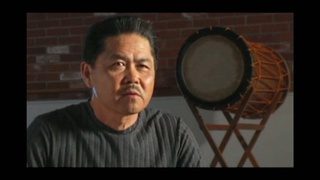Interviews
How he got on the All-Navy show on Ed Sullivan
We had to get up in the morning—four thirty in the morning, hold reveille, and we had to march to the cafeteria, even if we didn’t want to eat.
I was so mad, and then…they almost court-martialed me because I opened the locker room and I had the rifle hanging on the top shelf by the butt with the muzzle end facing down, and the thing fell down and hit my bare foot, right, and I broke three bones over there. And I could hardly walk to the mess hall. So what happened was, they had me on guard duty permanently. In the barracks, I used to wake them up in the morning. But I had this cast on, just for that foot.
And then I saw something on the desk of the front office, and it said, auditions for Ed Sullivan Show. You know, hey…what is this? So I asked my sister to send me my ukulele. And I auditioned at Mission Ballroom in San Diego and won, and from there, we went to Patuxent, Maryland, and then went to the St. Albans Hospital in New York and the Ed Sullivan Show.
Date: August 2012
Location: Hawai`i, US
Interviewer: John Esaki
Contributed by: Watase Media Arts Center, Japanese American National Museum



